
Stories, science and secrets from the world’s brightest thought-leaders. Behavioral Grooves is the podcast that satisfies your curiosity of why we do what we do. Explanations of human behavior that will improve your relationships, your wellbeing, and your organization by helping you find your groove.
Stories, science and secrets from the world’s brightest thought-leaders. Behavioral Grooves is the podcast that satisfies your curiosity of why we do what we do. Explanations of human behavior that will improve your relationships, your wellbeing, and your organization by helping you find your groove.
Episodes
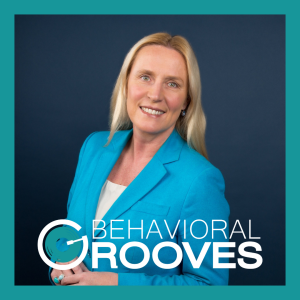
Monday Mar 17, 2025
Work Isn’t Fair—Here’s How to Fix It | Iris Bohnet
Monday Mar 17, 2025
Monday Mar 17, 2025
Can we design workplaces to be truly fair? Behavioral economist Iris Bohnet joins us to explore how implicit biases, stereotypes, and in-group preferences shape decision-making in the workplace—and what we can do about it. From the impact of blind auditions to the power of small structural changes, we dive into science-backed strategies for fostering more equitable organizations.
Topics
[0:00] Episode Intro - Can We Make Work Fair?
[5:58] Speed Round with Iris Bohnet
[7:29] The Hidden Impact of In-Group Bias
[14:35] Implicit Bias and the IAT Test - Explained
[18:44] Nature vs. Nurture in Bias
[24:45] Case Study: NYC Fire Department and Hiring Reform
[35:41] The Power (and Pitfalls) of Incentives and Fairness
[41:35] Desert Island Music
[45:23] Grooving Session: The Impact of In-Group Bias on Organizations
©2025 Behavioral Grooves
Links
Iris Bohnet’s book: Make Work Fair
Take the Implicit Association Test (IAT)
Study on NYC Fire Department’s hiring process
Join the Behavioral Grooves community
Subscribe to Behavioral Grooves on YouTube
Music Links
Adele - Make You Feel My Love
Bob Marley - Is This Love
Taylor Swift - Cruel Summer
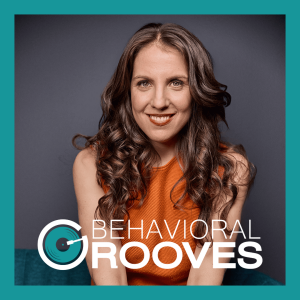
Monday Mar 10, 2025
The 10 Conversations You Need to Master at Work | Melody Wilding
Monday Mar 10, 2025
Monday Mar 10, 2025
Managing up isn’t about sucking up—it’s about taking control of your career. This week, executive coach and author Melody Wilding joins us to break down the ten essential workplace conversations that help you set boundaries, advocate for yourself, and navigate office dynamics with confidence. From understanding communication styles to negotiating your worth, Melody shares practical scripts and psychological insights that can help you work smarter—not just harder.
©2025 Behavioral Grooves
Topics
[00:00] Introduction to Melody Wilding
[01:15] Redefining Managing Up: What It Really Means
[02:52] The 10 Conversations That Matter Most at Work
[04:47] How You Teach People How to Treat You
[10:32] Communication Styles: The Key to Navigating Workplace Dynamics
[22:25] The Money Conversation: How to Ask for a Raise the Right Way
[28:15] How to Push Back Diplomatically on Low-Value Tasks
[33:50] The Role of Visibility and Navigating Office Politics
[41:58] The "Me Manual": Understanding & Asserting Your Own Style
[50:16] Finding Your Groove: Melody's Career Journey
[57:35] Grooving Session: Managing Up
©2025 Behavioral Grooves
Links
Join the Behavioral Grooves community
Subscribe to Behavioral Grooves on YouTube
Musical Links
Arcade Fire - Reflektor
Death Cab For Cutie - Soul Meets Body
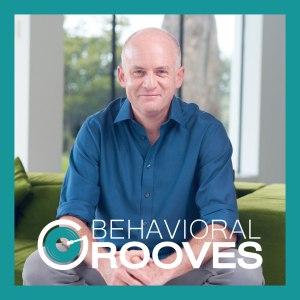
Monday Mar 03, 2025
Why Self-Improvement Is Holding You Back | Oliver Burkeman
Monday Mar 03, 2025
Monday Mar 03, 2025
Oliver Burkeman joins us to explore the power of imperfectionism and why waiting for the “perfect moment” is a trap. We discuss how perfectionism, productivity myths, and self-improvement frameworks can hold us back—and why embracing uncertainty is the key to doing meaningful work. Whether you’re looking to improve daily habits or rethink your approach to time and purpose, this conversation will inspire you to take action despite life’s inevitable messiness.
©2025 Behavioral Grooves
Topics
[00:00] Introduction & Why We Wait for the Perfect Moment
[4:15] Meet Oliver Burkeman: Author of Meditations for Mortals
[9:40] The Illusion of Control & The Productivity Trap
[15:30] What “Imperfectionism” Really Means
[22:45] Why Life Isn’t a Problem to Be Solved
[30:10] How Small Actions Create Big Meaning
[38:00] The Power of Letting Go & Taking the First Step
[45:50] Oliver’s Music Picks & The Importance of Everyday Moments
[1:00:00] Grooving Session: Final Takeaways & How to Apply This Philosophy Today
©2025 Behavioral Grooves
Links
Meditations for Mortals: Four Weeks to Embrace Your Limitations and Make Time for What Counts
Four Thousand Weeks: Time Management for Mortals
Join the Behavioral Grooves community
Subscribe to Behavioral Grooves on YouTube
Musical Links
The Divine Comedy - To The Rescue
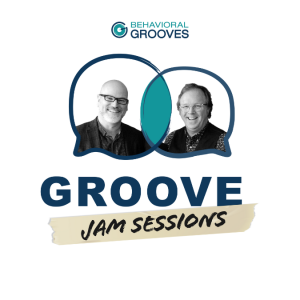
Thursday Feb 27, 2025
Groove Jams: What's Your Vice?
Thursday Feb 27, 2025
Thursday Feb 27, 2025
If you could remove one vice from your life, what would it be? In this month's Groove Jams, Tim and Kurt are joined by friend of the show Brad Shuck to explore the vices that hold us back. From overworking to doomscrolling, the trio unpacks what they struggle with giving up.
Except for Tim, who somehow avoids the question.
From tacos to self-doubt, tune in for an eye-opening look at the fine line between indulgence and discipline.
©2025 Behavioral Grooves
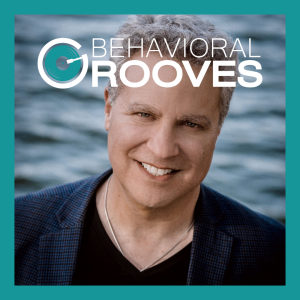
Monday Feb 24, 2025
Monday Feb 24, 2025
Dr. Adam Dorsay joins us to explore what it truly means to connect in a digital age. From the four key types of connection—self, others, the world, and something greater—to rekindling friendships and embracing technology for deeper bonds, this episode is packed with insights on building a more fulfilling life. Plus, we (of course) discuss the power of music, social comparison, and why sometimes, all it takes to make someone's day is a simple phone call.
©2025 Behavioral Grooves
Topics
[0:00] Introduction to Dr. Adam Dorsay
[5:41] Speed Round: Instruments, Languages, and Coffee
[22:36] The Four Types of Connection
[37:12] The Psychology of Savoring and Gratitude
[45:24] Why Are Modern Friendships So Hard?
[1:00:25] - The Driveway Test for Relationships
[1:03:45] - The Power of Music and Live Experiences
[1:12:00] - Key Takeaways on Connection and Joy
[1:30:02] - Closing Thoughts
©2025 Behavioral Grooves
Links
Learn more about Dr. Adam Dorsay
Join the Behavioral Grooves community
Subscribe to Behavioral Grooves on YouTube
Musical Links
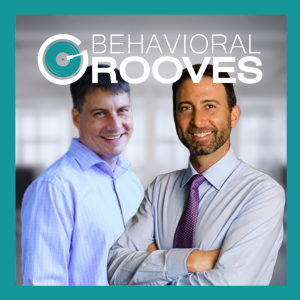
Monday Feb 17, 2025
Monday Feb 17, 2025
How accurate are rom-coms when it comes to love? Relationship scientists Paul Eastwick & Eli Finkel, co-hosts of Love Factually, put movie romance under a scientific lens, separating fact from fiction and revealing how Hollywood shapes our real-life expectations about love.
Topics
[0:00] Intro & Welcome to Paul Eastwick & Eli Finkel
[2:00] Coffee, Unicycles, and Speed Round Fun
[6:40] Introducing Love Factually: A Relationship Science Podcast
[10:05] Do Movies Teach Us About Love or Just Reflect Culture?
[15:35] The Rom-Com Myths That Hollywood Keeps Selling
[22:50] What Movies Get Surprisingly Right About Relationships
[30:10] The Power of Micro-Cultures in Romantic Relationships
[35:40] Relationship Science & The Challenges of Studying Love
[41:00] Personal Insights & Favorite Movies from Paul & Eli
[47:45] Music Preferences: The Soundtrack to Love & Life
[49:57] Closing Thoughts & Where to Find Love Factually
©2025 Behavioral Grooves
Links
The All-or-Nothing Marriage by Eli Finkel
Musical Links
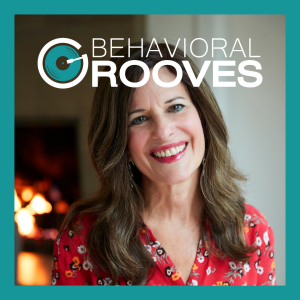
Monday Feb 10, 2025
The Science of a Thriving Relationship | Rachel Glik
Monday Feb 10, 2025
Monday Feb 10, 2025
Can love alone sustain a relationship? Probably not. In this pseudo-Valentine’s Day episode, therapist Rachel Glik explores the pillars of a soulful marriage: personal growth, prioritization, and shared purpose. We unpack the “duck effect” of social media’s relationship illusions, the value of embracing friction for deeper connection, and how self-responsibility and communication can turn struggling relationships into thriving ones. Plus, Rachel shares insights from Kabbalah and psychotherapy—because love is in the air, and so is science!
©2025 Behavioral Grooves
Topics
[0:00] Relationships, Social Media, and the Duck Effect
[6:00] Speed Round with Rachel Gilk
[8:46] Exploring the Four Pillars of a Soulful Marriage
[15:40] Embracing Friction: Why Conflict is a Growth Opportunity
[22:00] The Role of Kabbalah in Relationships
[35:00] Practical Tips for Enhancing Relationships
[40:50] The Love Seat Method
[50:13] Music Preferences
[1:00:00] Grooving Session: Love, Communication, and Personal Growth
©2025 Behavioral Grooves
Links
A Soulful Marriage: Healing Your Relationship with Responsibility, Growth, Priority, and Purpose
Musical Links
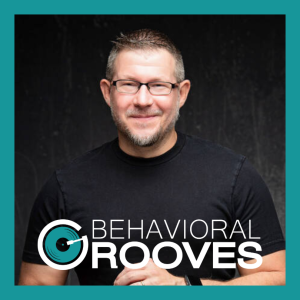
Monday Feb 03, 2025
Why Is Everyone So Angry? The Science of Outrage | Kurt Gray
Monday Feb 03, 2025
Monday Feb 03, 2025
Why do we see some people as victims and others as villains? Kurt Gray joins us to explore moral typecasting, the prey vs. predator mindset, and why harm is at the heart of all moral debates—whether it’s immigration, free speech, or gun rights. We uncover how our evolutionary instincts shape outrage and polarization and discuss practical strategies for bridging moral divides with personal stories instead of statistics.
Topics
[0:00] Moral Typecasting and Its Implications
[6:47] Intro to Kurt Gray and Speed Round
[10:30] Understanding Outrage and Moral Foundations
[18:30] Evolutions of Moral Psychology and Harm
[30:55] Moral Typecasting and Its Impact
[37:30] The Power of Personal Stories
[46:00] Practical Tips for Navigating Moral Discussions
[53:27] Grooving Session: Empathy, Understanding, and Discussing Divides
©2025 Behavioral Grooves
Links
Outrage: Why We Fight About Morality and Politics and How to Find Common Ground
Behavioral Grooves YouTube Channel
Join our Groove Community on Facebook!
Musical Links
Daft Punk – Tron Legacy Soundtrack
My Chemical Romance - The Black Parade
Bach - Trumpet Voluntary

Monday Jan 27, 2025
Turn a Negative Trait into Your Greatest Strength | Jenny Wood
Monday Jan 27, 2025
Monday Jan 27, 2025
What if personality traits deemed “negative” were actually the key to success? In this captivating conversation, former Google exec and author of Wild Courage, Jenny Wood, challenges us to redefine traits like “weird,” “selfish,” and even “manipulative” into powerful strengths. Discover how “nosiness” can spark meaningful connections, “brutal honesty” can establish essential boundaries, and strategic “window-gazing” can unlock breakthroughs in work and life. With humor, actionable tips, and even a surprising oatmeal cookie recipe, this episode will help you embrace your unique path to success.
©2025 Behavioral Grooves
Topics
[0:00] Introduction
[2:07] Speed Round with Jenny Wood
[4:34] Jenny’s experience with Wild Courage
[16:52] Challenging Traditional Definitions of Traits
[23:03] Practical Applications of Traits in the Workplace
[39:38] The Importance of Being Brutal
[43:23] Playing to Win
[50:34] Grooving Session: The Role of Language and Cultural Shifts
©2025 Behavioral Grooves
Links
Wild Courage: Go After What You Want and Get It by Jenny Wood
Musical Links
Lin-Manuel Miranda - The Room Where It Happens
Snow Patrol - Chasing Cars
Pink Floyd - The Great Gig in The Sky
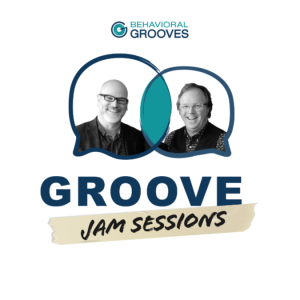
Thursday Jan 23, 2025
Groove Jams: Inside the Creation of Rock’s Greatest Albums
Thursday Jan 23, 2025
Thursday Jan 23, 2025
If you’ve ever wondered what puts the “Groove” in Behavioral Grooves, this episode has the answer!
We’re diving headfirst into the mesmerizing world of music with the legendary John Bargh to tackle the ultimate question: If you could sit in on the recording of any album in history, which one would you choose?
From the legendary sessions at Island Records to the eternal brilliance of Led Zeppelin’s Stairway to Heaven, we explore the artistry, spontaneity, and sheer magic behind music’s most iconic moments. Whether you’re a die-hard classic rock fan or just curious about the creative process, this episode will take you straight to the heart of music’s golden age.
©2025 Behavioral Grooves
We Made a Playlist for You!
Check out all the artists we discussed this week, here
